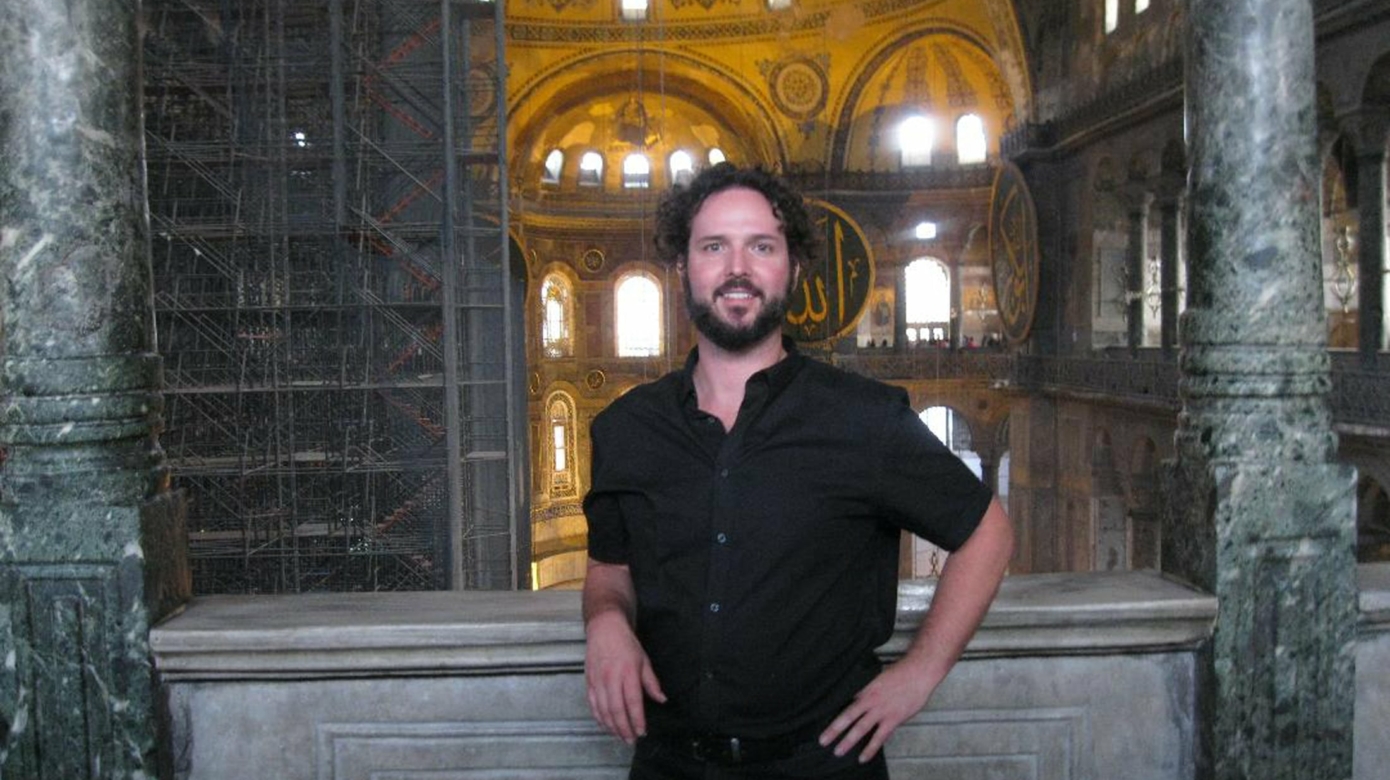Citizen Potawatomi Nation tribal member Preston Stovall began his studies at Montana State University, unsure of his path forward. He explored many different topics but found philosophy strung them all together.
“I wanted to consume knowledge; I just wanted to know things. I wanted to try to understand as much as I could, so I was taking classes all over the place. And I kept coming back to philosophy. … I felt as though there (were) sort of foundational roots that grow out of that discipline that maybe were a source for trying to get a handle on some of these other things,” Stovall said.
He graduated with his bachelor’s degree in philosophy from MSU in 2004 and then attended Texas A&M University, earning a master’s in philosophy and advanced international affairs in 2008. During that time, he also studied abroad at Oxford University in England. Finally, Stovall earned his doctorate in philosophy from the University of Pittsburgh in 2015.
He currently works as an assistant professor and postdoctoral researcher at the University of Hradec Králové and lives in the Czech Republic.
Travels
As the son of an Army soldier, the Bowles family descendant lived in Germany before the fall of the Berlin Wall and in Cairo, Egypt, during the first Gulf War in the early 90s. However, both sides of his family lived in Montana for a few generations, where the Stovalls eventually returned.
“I traveled a bunch as a kid, which was great. I really enjoyed the experience. And it’s one of the things that made it easier for me to come to the Czech Republic because I remember what it’s like being American overseas, and I think its good to get that experience,” he said.
After living in Kansas, Texas, Germany, New Jersey, Egypt, Washington, Montana, England, Texas (again) and Pennsylvania, Stovall accepted the opportunity as a postdoctoral researcher at the University of Hradec Králové without hesitation. He has lived there since 2017.
“I jumped at the chance. It really looked like a good opportunity, and I knew some of the people here and the work they were doing. … So when they said they were interested in hiring me, I basically said, ‘Well, I have my bag packed,’” he said.
Research
With specialties in metaphysics, the philosophy of mind, and the philosophy of language, Stovall attempts to understand human interaction and collective thinking on a deep level. He has worked since 2017 to apply his research to ideas concerning the social basis of rationality, and shared intentionality — the contextual meaning of thoughts/concepts themselves and the ability of humans to share mental states, respectively. In 2022, he published his first book on the topic, The Single-Minded Animal: Shared Intentionality, Normativity, and the Foundations of Discursive Cognition.
“(Shared intentionality is) characteristic of our form of life,” Stovall said. “By the first couple of days (after birth), we’re following emotions and eye-tracking. And by the first year, it’s developed into a fairly sophisticated capacity to share emotions and perceptual states and interests with other people.”
His most recent research project focuses on social media and its effect on the mental states and thinking of youth. Stovall serves as a program manager and instructor for a project titled Critical Thinking About Social Media at the Center for Science, Technology, Ethics, and Society at Montana State University.
“There’s good evidence to think that social media is responsible for the rise of rates of depression that we’re seeing among young people. … If you’re on the extreme end of social media use in terms of hours per week, but for young girls in particular, it looks like the rise we’re seeing in rates of depression and self-harm are influenced by social media use. Social media use also appears to be leading to an increase in political polarization, and it seems like we’ve really got to get on top of this,” Stovall said.
Teaching
Next, Stovall plans to focus on teaching outside the university and his assistant professorship at the University of Hradec Králové. He has also spoken and led short courses at primary schools in Pennsylvania, Montana and the Czech Republic. He wants to help students develop critical thinking skills earlier in life.
During a recent Hownikan interview, Stovall quoted Socrates: “The unexamined life isn’t worth living.”
“I hope (my students) take an appreciation of the kinds of wonder and complexity that can be found in both the significant and the mundane,” he said. “And then, as a result, I hope they live a more examined life. … I think there’s something to be said for that. And I think that one of the things that philosophy can help inculcate is a sense of self-knowledge, self-reflection, examination.”
Stovall’s life has taken him around the globe and compelled him to study all levels of human thought, and he enjoys seeing where his journey leads him.
Find Preston Stovall’s work online at cpn.news/stovall.

